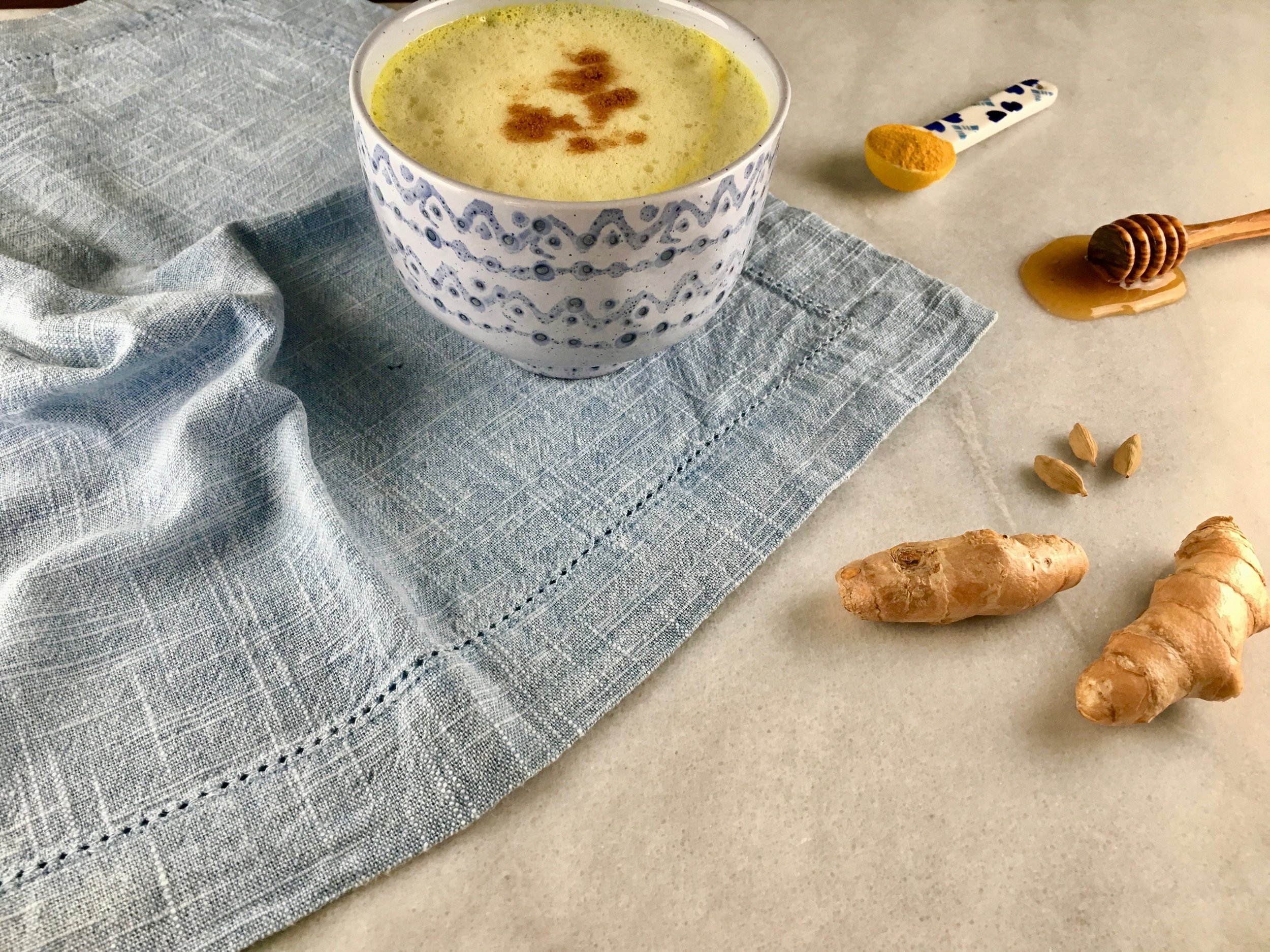Ayurveda and Unwanted Advice
by Farzana Rahman
GROWING UP WITH AYURVEDIC TRADITIONS
We grew up learning about ayurvedic traditions, except we didn’t know that’s what they were.
They were just tidbits we heard from parents, grandparents and other relatives. This may conjure an image of a harmonious inter-generational sharing of traditions. This was not the case. Nuggets of information about ayurveda were shared in a fairly random haphazard fashion, often uninvited.
Examples of advice included:
- Don’t drink water with your meals
- Don’t eat citrus fruit before 11am
- Eat a spoonful of nigella seeds everyday
- Don’t eat in front of the TV
- Chew your food more slowly
- Chew ginger to get rid of a cold
Much of this advice didn't have any context behind it. We didn't really what ayurveda was or understand the wisdom behind ayurvedic tradition.
As teenagers, much of this seemed nonsensical. Many an argument was had about why we couldn’t eat in front of the TV. I did not understand the citrus fruit thing at all. People on TV ate grapefruit for breakfast all the time and they seemed just fine (it was the 90s, grapefruits were a real thing).
Coming Back Full Circle
It was only years later that I realised the advice I had grown up hearing was rooted in ayurvedic tradition. Whilst on a yoga retreat, I met a teacher who had travelled extensively around India and completed a course on ayurvedic nutrition. I found her insights fascinating and had a consultation where ayurveda and ayurvedic traditions were explained.
When I returned and told my mum what I had learned, I was met with hoots of laughter. I had paid good money to listen to stuff she would have told me for free.
How do we share and Pass on Knowledge ?
This experience got me thinking about how we share knowledge, habits and behaviour across generations.
Although I was initially cynical, I did end up listening to the advice of my childhood. I down ginger tea when I’m ill, I try to eat breakfast everyday and I don’t eat citrus fruits first thing in the morning (not that the last one is a challenge, how could anyone want to eat a grapefruit for breakfast ?)
Whenever we talk to other doctors, we’re surprised by how many people visit the doctor for a simple cold. New parents often take their children to the doctor or hospital fairly innocuous symptoms. As a society, it seems that we’ve become increasingly anxious about our health.
are we overloaded with information?
My computer when it's had enough of endless Googling - photo by Markus Spiske
The answer to this question is perhaps obvious. It's not surprising that we're bogged down with data as the sheer volume of information out there can be overwhelming.
Search ‘causes of a cough’ online and you’ll come up with diagnoses that range from a common cold to lung cancer. It’s not surprising that after hours of reading about terrible diseases, you begin to think that you have one. It’s a classic case of medical student’s disease (This is when, after you’ve done about a year of medicine, you begin to self-diagnose yourself with rare, esoteric diseases. My friends diagnosed me with myasthenia gravis, a rare autoimmune condition. It goes without saying that I did not actually have myasthenia gravis).
So it seems that whether you’re a slightly lost medical student or avid researcher of all things online, it seems that too much information is not always a good thing.
Which brings me back to understanding how we share information across communities, families and generations. In the old model of knowledge sharing, there was, by its vary nature, a degree of information curation and human interaction. For example, when our parents grew up in Bangladesh, a new mother could find comfort and knowledge from the communities of mothers and grandmothers around her. As well as sharing tips, they could offer comfort and reassurance, going some way to allay anxiety.
It’s interesting that although technology has made the world smaller and provided an infinite amount of information, at times it seems we’ve become increasingly divided. We may have unlimited information but maybe that doesn’t always lead to real knowledge.
A friend who is a general practitioner has a favourite phrase she uses with patients, friends, family, her kids and her spouse. In other words pretty much everyone she meets...
‘step away from Google.’


